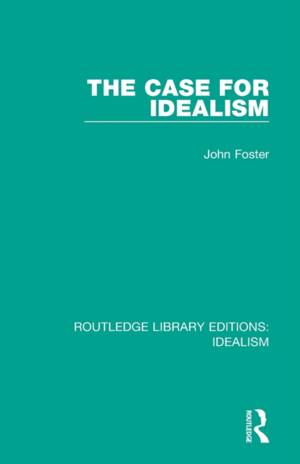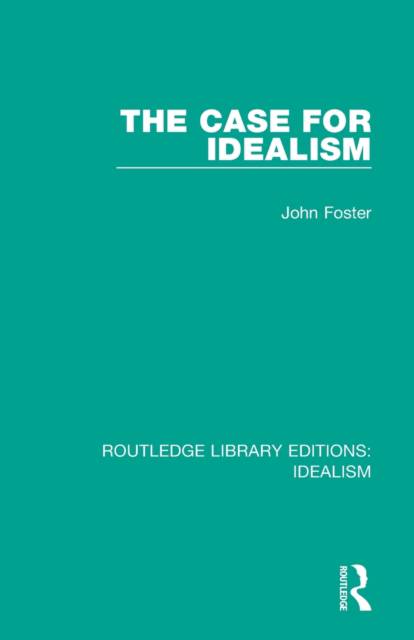
- Afhalen na 1 uur in een winkel met voorraad
- In januari gratis thuislevering in België
- Ruim aanbod met 7 miljoen producten
- Afhalen na 1 uur in een winkel met voorraad
- In januari gratis thuislevering in België
- Ruim aanbod met 7 miljoen producten
Omschrijving
Originally published in 1982, the aim of this book is a controversial one - to refute, by the most rigorous philosophical methods, physical realism and to develop and defend in its place a version of phenomenalism. Physical realism here refers to the thesis that the physical world (or some selected portion of it) is an ingredient of ultimate reality, where ultimate reality is the totality of those entities and facts which are not logically sustained by anything else. Thus, in arguing against physical realism, the author sets out to establish that ultimate reality is wholly non-physical. The crucial elements in this argument are the topic-neutrality of physical description and the relationship between physical geometry and natural law.
The version of phenomenalism advanced by John Foster develops out of this refutation of physical realism. Its central claim is that the physical world is the logical creation of the natural (non-logical) constraints on human sense-experience. This phenomenalist perspective assumes that there is some form of time in which human experience occurs but which is logically prior to the physical world, and Foster explores in detail the nature of this pre-physical time and its relation to time as a framework for physical events.
This book was a major contribution to contemporary philosophical thinking at the time.
Specificaties
Betrokkenen
- Auteur(s):
- Uitgeverij:
Inhoud
- Aantal bladzijden:
- 322
- Taal:
- Engels
- Reeks:
Eigenschappen
- Productcode (EAN):
- 9780367720421
- Verschijningsdatum:
- 12/04/2023
- Uitvoering:
- Paperback
- Formaat:
- Trade paperback (VS)
- Afmetingen:
- 140 mm x 216 mm
- Gewicht:
- 371 g

Alleen bij Standaard Boekhandel
Beoordelingen
We publiceren alleen reviews die voldoen aan de voorwaarden voor reviews. Bekijk onze voorwaarden voor reviews.









